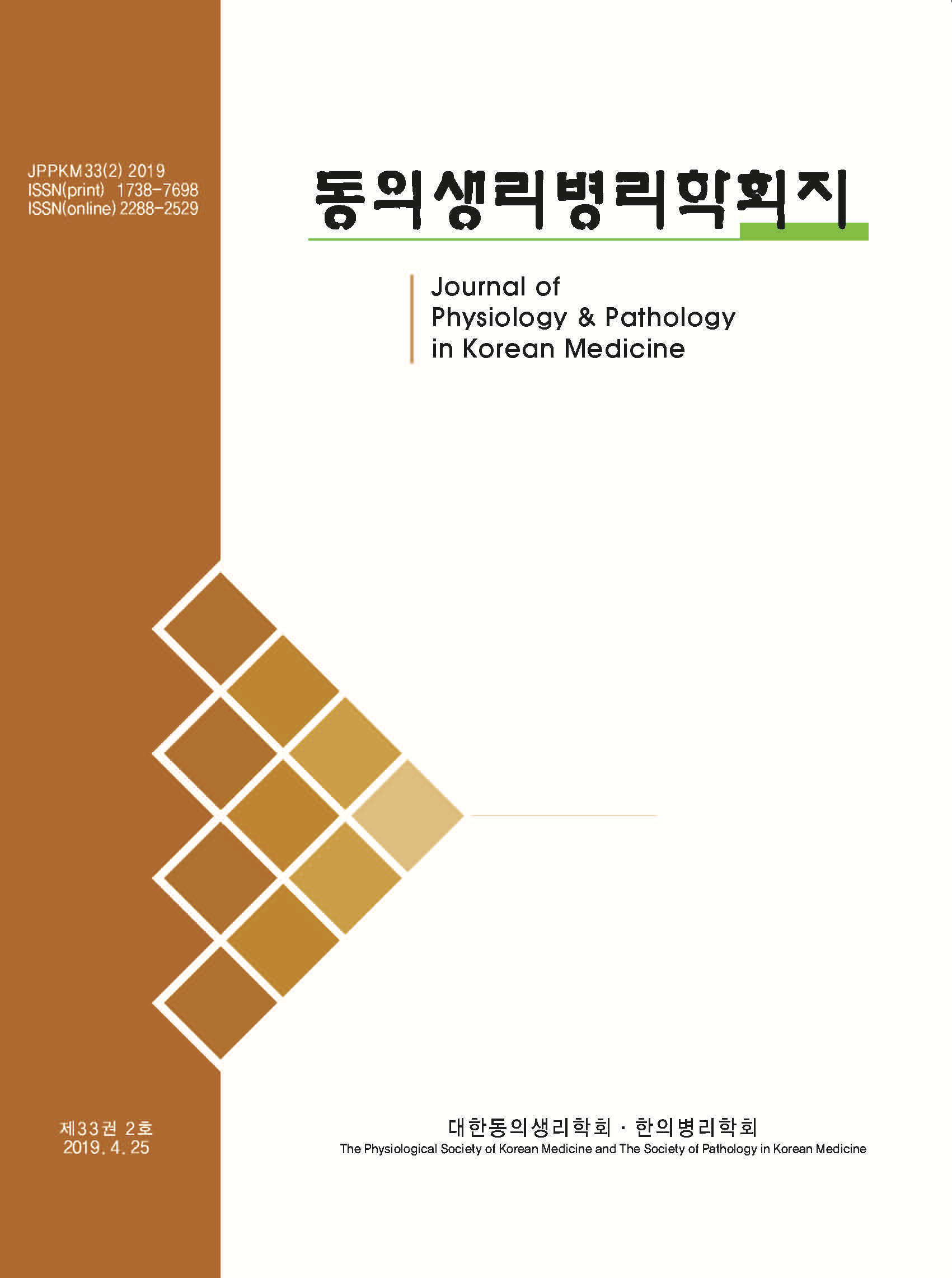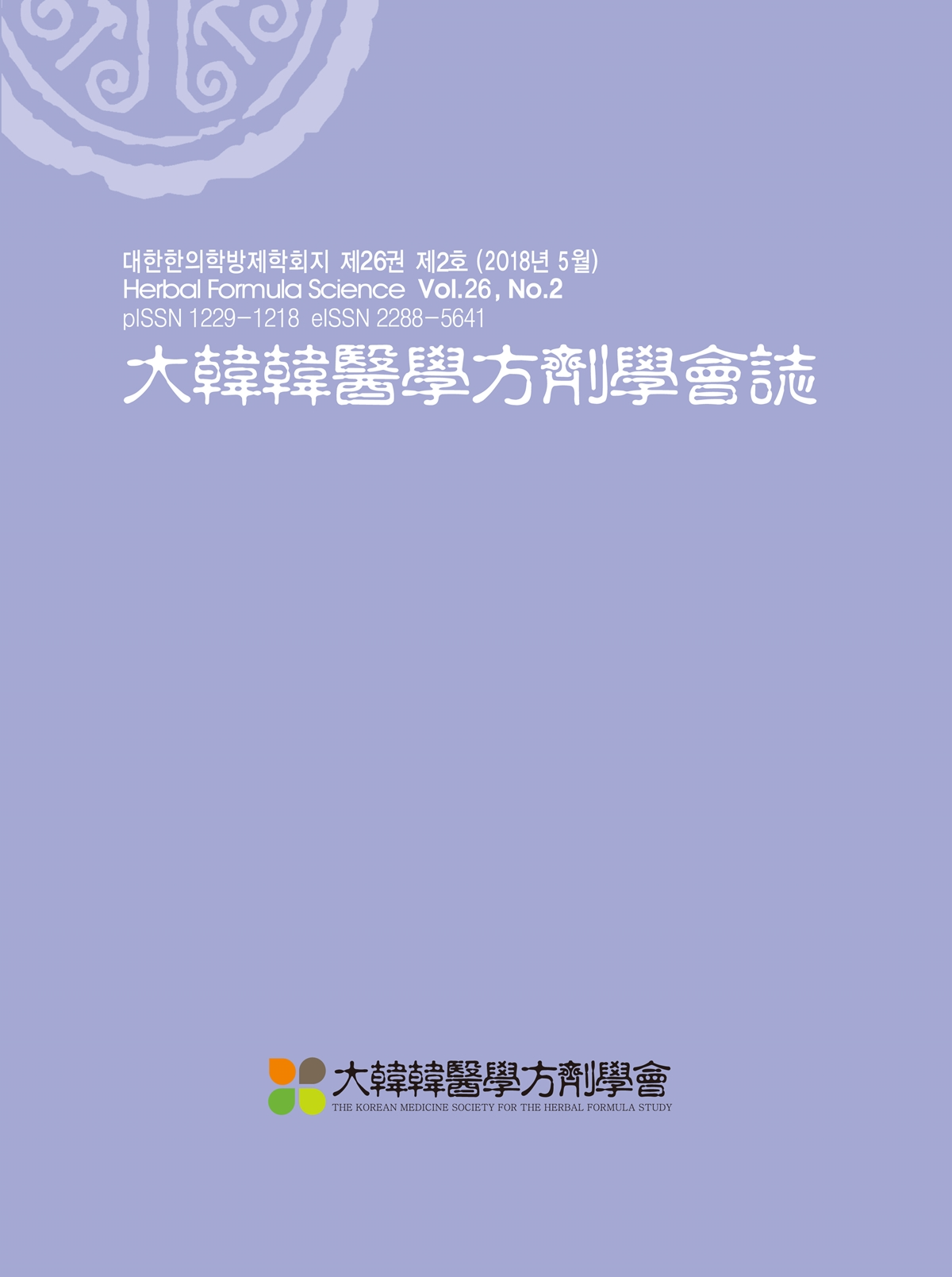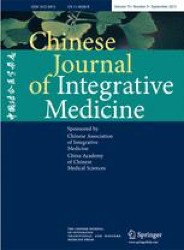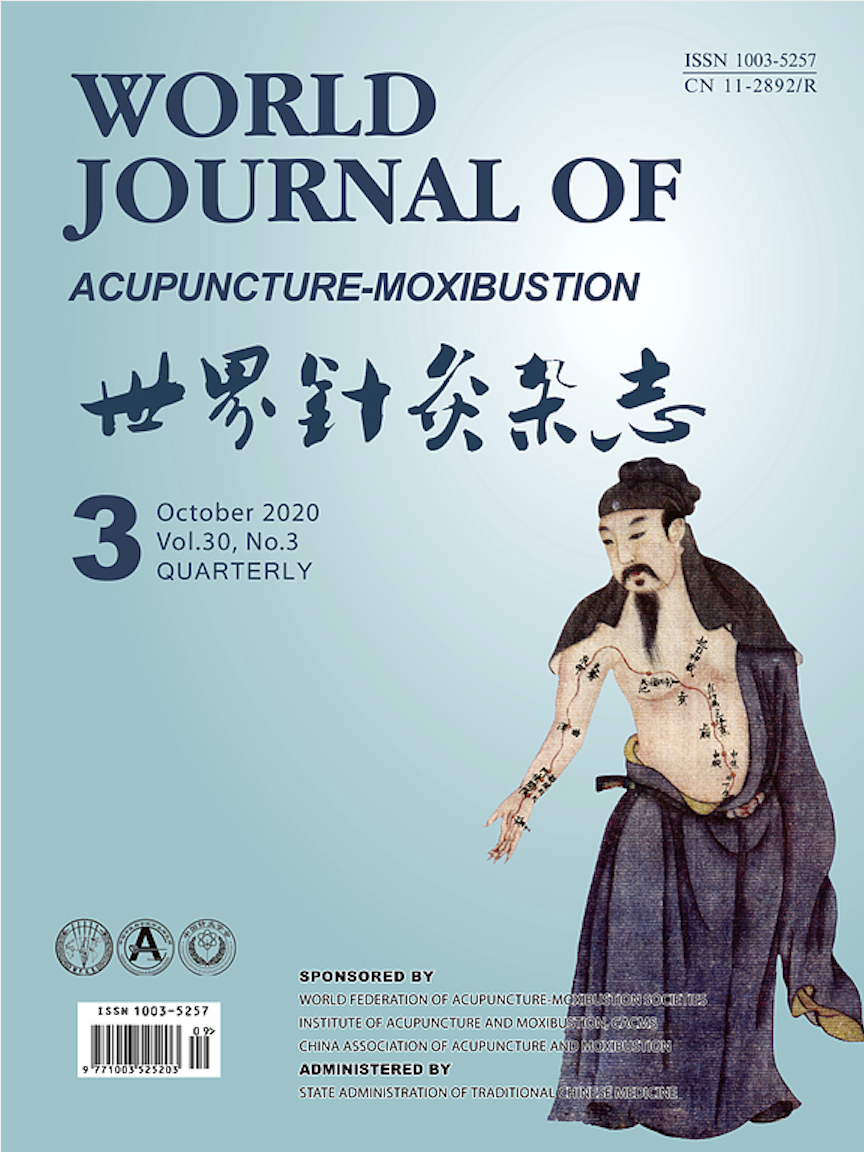Presentation Slides
Chinese Medicine Research Hub
Treatments according to traditional Chinese medicine syndrome differentiation can provide patients with individualized treatments for chronic fatigue syndrome.
2020 Evidence-Based Complementary and Alternative Medicine Advances in Clinical Research on Traditional Chinese Medicine Treatment of Chronic Fatigue Syndrome
Zhang X, Wang M, Zhou S
Chinese Medicine Research Hub
Systematic Review
Xiao Yao San and its modifications were effective for the improvement of general symptoms and fatigue severity in chronic fatigue syndrome post-treatment.
2020 Journal of Physiology & Pathology in Korean Medicine Effectiveness of Soyo-san (Xiaoyao-san) and its Modifications on Chronic Fatigue Syndrome: a Systematic Review and Meta-analysis
Kim J, Song J, Nam D
Chinese Medicine Research Hub
Systematic Review
Gui Pi Tang may be beneficial for relieving and managing the general symptoms in CFS patients.
2020 Herbal Formula Science Is Gwibitang and its modification beneficial for alleviating symptoms in chronic fatigue syndrome: A systematic review and meta-analysis
Nam, Donghyun
Chinese Medicine Research Hub
Systematic Review
Acupuncture on treating chronic fatigue syndrome has the advantage for efficacy and safety compared to conventional treatments such as drugs, counselling psychology and physical therapy.
2020 Chinese Journal of Integrative Medicine Acupuncture for Chronic Fatigue Syndrome: An Overview of Systematic Reviews
Yin ZH, Wang LJ, Cheng Y, Chen J, Hong XJ, Zhao L, Liang FR.
Chinese Medicine Research Hub
Systematic Review
Acupuncture appeared to significantly reduce fatigue severity measured by Chalder's Fatigue Scale and the Fatigue Severity Scale compared with other types of control.
2019 Acupuncture in Medicine Acupuncture for chronic fatigue syndrome: a systematic review and meta-analysis
Zhang Q, Gong J, Dong H, Xu S, Wang W, Huang G
Chinese Medicine Research Hub
Randomised Controlled Trial
Acupuncture on back-shu points of five zang, significantly improves both the physical and mental fatigue in chronic fatigue syndrome patients, along with enhancing their psychological status.
2018 World Journal of Acupuncture-Moxibustion Acupuncture on back-shu points of five zang for chronic fatigue syndrome: A randomized control trial
CHEN S, LIU R, WU B, CHEN S, GUO F, XUE X, WANG J
Chinese Medicine Research Hub
Systematic Review
Tai Chi could be an effective alternative and/or complementary approach to existing therapies for people with fatigue.
2017 PLOS One Does Tai Chi relieve fatigue? A systematic review and meta-analysis of randomized controlled trials
Yu Xiang, Liming Lu, Xiankun Chen, Zehuai Wen
Chinese Medicine Research Hub
Systematic Review
Acupuncture and moxibustion were found to be more effective than Chinese herbal medicine, western medicine and placebo treatment (sham-acupuncture) in relieving symptoms of chronic fatigue syndrome.
2017 BMC Complementary Medicine and Therapies Acupuncture and moxibustion for chronic fatigue syndrome in traditional Chinese medicine: a systematic review and meta-analysis
Wang T, Xu C, Pan K, Xiong H.
Executive Summary
Write an executive summary in the form of a blog article on the topic of "Research into Chinese medicine treatment for Chronic Fatigue Syndrome" summarising the research below and using language that can be easily understood by patients and avoiding medical jargon using a professional and caring tone of voice.
Write an executive summary in the form of a blog article on the topic of "Researched Chinese medicine treatments for Chronic Fatigue Syndrome" summarising the research below in an objective and easy to understand way, and using language that can be easily understood by patients. Group the article into Chinese medicine treatments first, followed by nutrition and other treatments. Avoid using medical jargon and use a professional and caring tone of voice.
Write me a concise but easy to understand executive summary on the topic of "Chinese medicine treatments for Chronic Fatigue Syndrome" based on the following research that I will give you. Your summary should be 2 paragraphs long in Australian English spelling and include references to the studies.
A published in 2020 in the journal Evidence-Based Complementary and Alternative Medicine found that Treatments according to traditional Chinese medicine syndrome differentiation can provide patients with individualized treatments for chronic fatigue syndrome. Currently, there are many methods for treating CFS with TCM, showing its advantages. On one hand, treatments according to syndrome differentiation are diverse and involve herbal decoctions and proprietary Chinese medicines. External treatments include moxibustion, acupuncture, tuina, cupping, and other treatments. Combination therapies include two or more external treatments combined and internal and external treatments combined, which are often better than monotherapies and can remedy deficiencies. However, the clinical manifestations of CFS are different. Although fatigue is the main manifestation, there are individual differences in the appearance of insomnia or muscle pain in some patients. Treatments according to syndrome differentiation can provide patients with individualized treatments. On the other hand, TCM often has the advantages of simplicity, effectiveness, convenience, and a lower cost.
A Systematic Review published in 2020 in the journal Journal of Physiology & Pathology in Korean Medicine found that Xiao Yao San and its modifications were effective for the improvement of general symptoms and fatigue severity in chronic fatigue syndrome post-treatment. We performed selection/exclusion process from the found studies to conform with prespecified criteria, and assessed the final included trials according to the Cochrane risk of bias tool. The included studies were classified based on the interventions in experimental and control group.
Eight randomized controlled trials and one controlled clinical trial (total 921 participants) were eligible and their results were synthesized in the meta analysis. The synthesis showed a considerable effect of Soyo-san and its modifications on improvement of general symptoms and fatigue severity in CFS patients, while effect on depression and anxiety were inconclusive.
A Systematic Review published in 2020 in the journal Herbal Formula Science found that Gui Pi Tang may be beneficial for relieving and managing the general symptoms in CFS patients. The results of eight randomized controlled trials (n=596) were included in the meta-analysis. The results of the synthesis showed Gwibitang is beneficial substantially for relieving and managing the general symptoms, and its heterogeneity was not in important level. Gwibitang was beneficial for alleviating fatigue, but its certainty was low.
A Systematic Review published in 2020 in the journal Chinese Journal of Integrative Medicine found that Acupuncture on treating chronic fatigue syndrome has the advantage for efficacy and safety compared to conventional treatments such as drugs, counselling psychology and physical therapy. We found that acupuncture on treating Chronic Fatigue Syndrome has the advantage for efficacy and safety compared to conventional treatments such as drugs, counseling psychology and physical therapy. Acupuncture has shown to have less side effects and drug resistance. A combined therapy of Western medicine and Chinese medicine has proven to be most effective for patients.
A Systematic Review published in 2019 in the journal Acupuncture in Medicine found that Acupuncture appeared to significantly reduce fatigue severity measured by Chalder's Fatigue Scale and the Fatigue Severity Scale compared with other types of control. Sixteen studies with 1346 subjects were included. Most studies had low methodological quality. Meta-analyses showed a favourable effect of acupuncture on overall response rate compared with sham acupuncture and Chinese herbal medicine. Acupuncture also appeared to significantly reduce fatigue severity measured by Chalder’s Fatigue Scale and the Fatigue Severity Scale compared with other types of control.
Our review indicated that acupuncture was more effective than sham acupuncture and other interventions (Chinese herbal medicine, mainly), but no firm conclusion could be reached owing to limited data, poor quality and potentially exaggerated effect size evaluation. Further large, rigorously designed and reported RCTs are required.
A Randomised Controlled Trial published in 2018 in the journal World Journal of Acupuncture-Moxibustion found that Acupuncture on back-shu points of five zang, significantly improves both the physical and mental fatigue in chronic fatigue syndrome patients, along with enhancing their psychological status. In this study, sixty patients divided into a treatment group and a control group. The treatment group received acupuncture on the back-shu points of five zang organs. Techniques used included perpendicular and oblique needling, lifting-thrusting, and twisting-twirling, each acupoint being attended for 10 seconds. In contrast, the control group received the treatment outward of these points without seeking deqi, a sensation linked to effective needling, and with no manipulation. Both groups received treatments twice a week, each lasting twenty minutes, and to a total of eight treatments.
The study's results showed that there was a higher effective treatment rate seen in the group who received acupuncture on back-shu points than the control group. Physical and mental fatigue scores, assessed using Fatigue Scale-14, were significantly reduced post-treatment in the treatment group. Moreover, the Symptom Check-List 90, used to measure the patient's psychological status, showed notable improvement in the treatment group, demonstrating that the acupuncture approach used in the treatment group improved not just physical and mental fatigue but also the patients' psychological state. While the treatment rendered a positive impact on the control group too, the outcome was more pronounced in the treatment group.
A Systematic Review published in 2017 in the journal PLOS One found that Tai Chi could be an effective alternative and/or complementary approach to existing therapies for people with fatigue. The overall aggregated result showed that Tai Chi achieved better gains in relieving fatigue compared to the control interventions. For the subgroup analysis, Tai Chi was more beneficial for cancer-related fatigue. However, for multiple sclerosis-related fatigue, age-related fatigue, there were no significant difference between two groups. Tai Chi improved fatigue greater than conventional treatment and low-impact exercise control, while no difference was observed comparing with health education control. The length between ≤ 3 months and > 3 months and the frequency between < 5 times a week and ≥ 5 times a week, the pooled results indicated that they all have significant difference. However, in the duration≤ 60 minutes, Tai Chi was improved fatigue greater. In the duration > 60 minutes, there were no difference between two groups. So, the duration≤ 60 minutes may be better than > 60 minutes.
A Systematic Review published in 2017 in the journal BMC Complementary Medicine and Therapies found that Acupuncture and moxibustion were found to be more effective than Chinese herbal medicine, western medicine and placebo treatment (sham-acupuncture) in relieving symptoms of chronic fatigue syndrome. A total of 31 randomized controlled trials (RCTs) were enrolled in analyses. In traditional direct meta-analysis, we found that in comparison to Chinese herbal medicine, CbAM (combined acupuncture and moxibustion, which meant two or more types of acupuncture and moxibustion were adopted) had a higher total effective rate. Compared with Chinese herbal medicine, western medicine and sham-acupuncture, SAM (single acupuncture or single moxibustion) had a higher total effective rate. In addition, compared with SAM, CbAM had a higher total effective rate. In network meta-analyses, similar results were recorded. Subsequently, we ranked all treatments from high to low effective rate and the order was CbAM, SAM, Chinese herbal medicine, western medicine and sham-acupuncture.
In the treatment of CFS, CbAM and SAM may have better effect than other treatments. However, the included trials have relatively poor quality, hence high quality studies are needed to confirm our finding.











Regarding RCTs of alternative medicines such as acupuncture, qigong, and abdominal tuina, 10 RCTs were selected in our review process, but 6 were excluded due to low quality (a Jadad score less than 3) or too few participants. —Jinnan C 13 Sep 2021